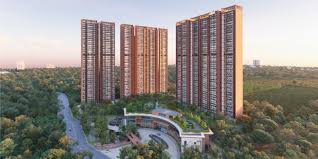
How to Evaluate ROI Before Buying Property in Gurgaon
Author : Rahul | Posted On : 19 Aug 2025 | Last Updated On : 26 Nov 2025
How to Evaluate ROI Before Buying Property in Gurgaon
Gurgaon's real-estate market is booming with possibilities, yet even the most attractive property could be a disappointment when you don't evaluate the property's return on investment (ROI). If you're buying to earn rental income, capital appreciation or both, knowing ROI before you make a decision will help you avoid expensive mistakes and help you maximise profits.
1. Understand the Purpose of Your Investment
Before calculating ROI, define your goal. Are you seeking stable rental income, or do you anticipate an appreciation in the property over time? In particular, commercial properties that are located in prime locations could generate greater monthly rents, while specific residential areas could have more resales in the future.
2. Research Location and Demand Trends
In Gurgaon, the location can be the difference between success and failure for the value of your investment. Locations such as Golf Course Extension Road, Sohna Road, and along Dwarka Expressway have shown strong growth potential. Consider factors like upcoming infrastructure projects, business centres nearby, as well as connectivity. Properties in high-demand regions typically provide a faster return on investment.
3. Calculate Expected Rental Yield
Rent yield is among the most straightforward ways to calculate ROI. Apply this formula:
Rental Yield (%) = (Annual Rental Income / Property Purchase Price) x 100 If, for example, your apartment is worth Rs1 crore, and you pay an average of Rs25,000 each month (Rs3 lakh/year), then your rent yield is 3 per cent. Compare the yields of different property types to find the highest yielding property.
4. Estimate Capital Appreciation Potential
While the rental yield can provide some insight into the short-term capital appreciation will determine the long-term viability. Review historical price trends as well as government plans for development and the future drivers of demand. As an example, prices for properties in the vicinity of the metro extensions or upgrades to the highways in Gurgaon frequently see major jumps.
5. Factor in Costs and Risks
ROI isn't just about earning money. It's also about net profits. Take out property maintenance fees, registration costs, taxes, along with loan interest, as well as the possibility of vacancy from the income estimations. An investment property that has a high Gross ROI, but a high amount of upkeep, could result in low real returns.
6. Comparing with Alternative Investments
Think about whether an investment into bond funds, mutual funds or any other type of property provides more returns while maintaining the same risk? Property in Gurgaon has been historically superior to other options for investment; however, this comparison keeps the expectations reasonable.
7. Consult Experts Before Finalising
Local real estate agents offer insights at a deeper level which online information often overlooks. They are able to help you identify property that is undervalued, as well as negotiate better bargains and provide a more precise idea of the actual potential ROI.
Evaluating the return on investment before purchasing a real estate in Gurgaon involves a combination of market research, numbers as well and insight. If you follow the steps above, it is possible to make an informed choice that is balanced between the risks and returns. For investors who require personalised guidance as well as exclusive investment opportunities in Gurgaon, TrueAssets Consultancy gives expert insight and support from beginning to end to ensure that your investment yields the results you're hoping for.
FAQs
What is the best return on investment property within Gurgaon?
A rent yield of 3 to 5 percentage and annual capital appreciation between 8 and 12 typically considered to be acceptable.
Do you think residential or commercial property is more profitable for ROI in Gurgaon?
Commercial properties usually have better rent yields, whereas homes may offer more steady appreciation over the long term.
What is the recommended frequency to evaluate my home's return on investment?
Ideally, you should review your ROI every year, or at any time important market developments happen.
Can ROI be negative?
Yes, when expenses exceed earnings or the value of property decreases due to the market.
How can infrastructure development influence the return on investment?
Metro connectivity, new roads, as well as business hubs usually improve property sales and the ROI as time passes.